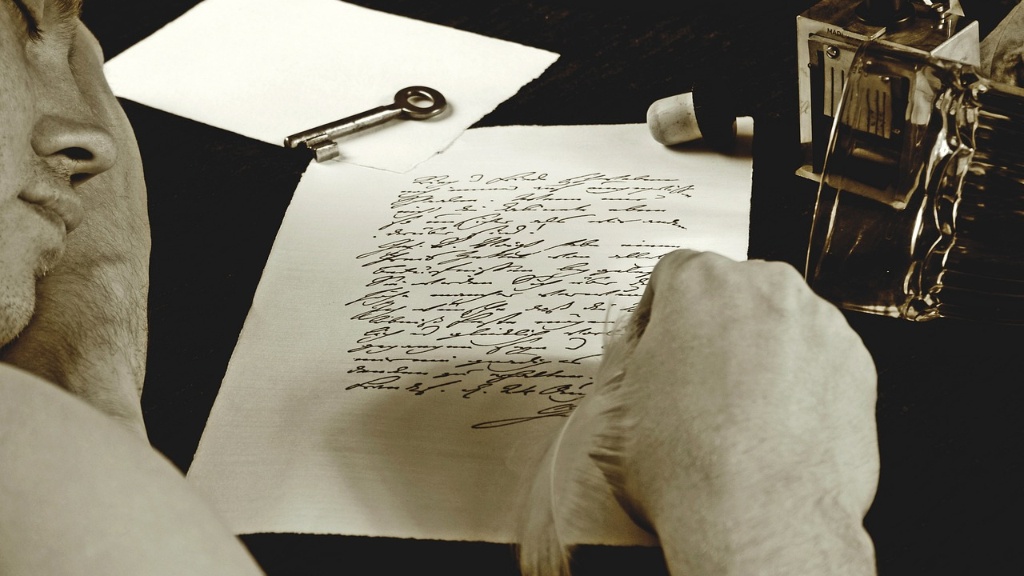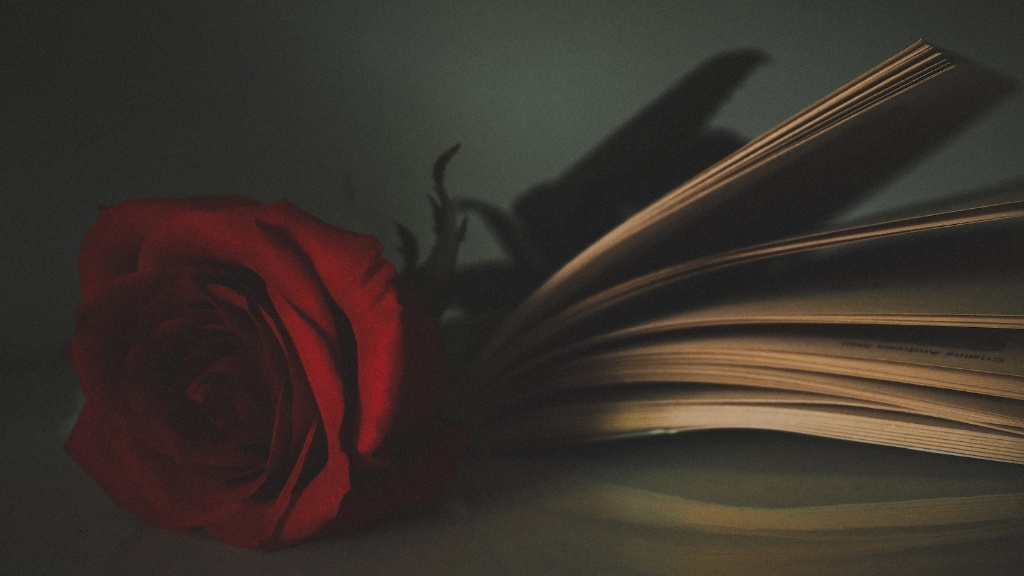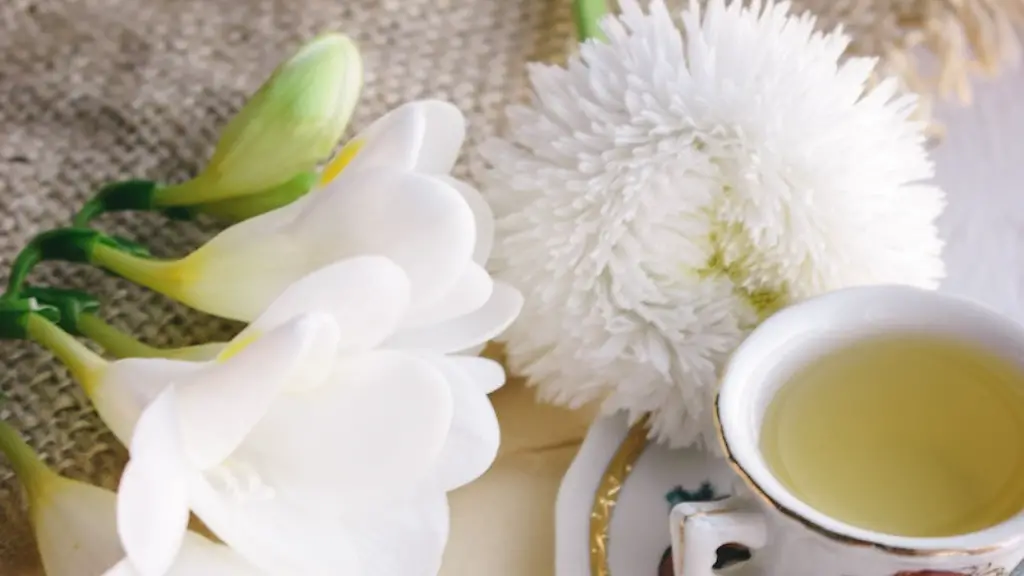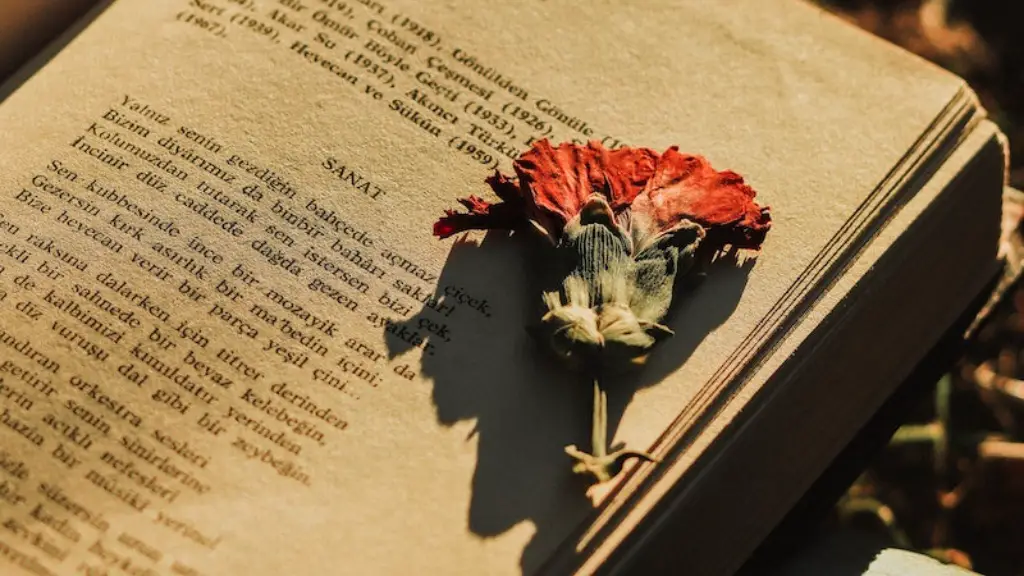Can Anyone Write Poetry?
In the poetic arts, there is a constant debate whether or not it is possible for anyone to write poetry. It is argued that the talent of creating verse is something that can’t be taught and can only be documented with remarkable depth and insight if it has been embedded in the being from the beginning. On the other hand, many experts strongly insist that anybody can write poetry regardless of their background knowledge in the literary realm, or lack thereof.
In order to consider this perspective, some understanding of what constitutes a “proper” poem is important; according to critics, a compelling poem must not only have a pleasing form but emotions that linger in the readers’ minds, vivid and meaningful images and an ascending narrative structure. As such, the task of writing a poem that meets all the criteria can be seen as daunting, if not impossible– especially for individuals who are not accustomed to the necessary level of creativity.
However, many educators and poets alike believe that it is possible for any individual to create a piece of poetry if the person has access to sufficient instructions. A course of study that combines a basic understanding of the poetic concepts with practice will allow an individual to unlock the power of language and share their stories and feelings in verse. This often includes understanding rhyme and meter and different forms of poetry. It is also important to have an open mind as many topics that make interesting poetry are not conventional.
At the very least, the ability to write a good poem is something that everyone is capable of developing with practice. While an aspiring poet must have the right mindset, it is also crucial to have a capacity for understanding language and a flair for words where the individual tries to emulate the words and themes of established poets.
Many experts believe that concrete guidance and self-expression are two important aspects of becoming a successful poet: the guidance of mentors and self-criticism are essential in self-improvement. It is only by looking within, analyzing emotions and making use of them can a poet create a piece of literature that truly ascends far beyond the conventional expectations.
When all these steps are taken, many poets come to the conclusion that writing poetry is something that individuals linked to it from the very start – but it is an art form anyone can approach and master, regardless of their level of experience and knowledge.
Elements of a Poem
In light of the fact that writing poetry is accessible to everyone, it’s important to understand the main elements that go into a poem, and the different forms poetry can take. An important part of poetry is the structure, which is typically broken down into lines, stanzas and rhyme schemes. Different forms of poetry, such as limericks, haikus and sonnets, are structured in a variety of ways. Likewise, understanding some of the poetic devices, such as alliteration, allegory and assonance, can make a poem even more impactful.
Another important tool in a poet’s arsenal is the choice of words. Creative and experienced poets often take the same idea and express it in different ways, thereby underlining the importance of making powerful, precise and beautiful associations of words.
Lastly, the theme, or the main idea of the poem, is what will stay with the reader and influences the work itself. A good poem incorporates the writer’s perspective on a topic and includes characters and/or an emotional journey that resonates with the reader.
Techniques For Crafting Poetry
Writing poetry can be an overwhelming task for aspiring poets – where do you start? There are many techniques that can be used to craft a poem. Starting a poem by brainstorming and making lists is a great way to start to create structure and nuance. Additionally, focusing on one specific emotion and using words to express it can bring out powerful ideas and feelings. Additionally, using experiences to inspire poems is a great way to add an element of understanding and relatability.
In addition to expressing emotions, focusing on and writing about a specific topic can be beneficial – this can also be thought of as writing with focus. This can be done by having a clear image and idea in the mind, or focusing on a particular place, feeling, person or object.
Experimenting with different poetic forms, such as free verse, haiku, abab and sonnet, and the use of tools such sentence structure and rhyme is another way to guide a poet’s writing and structure a poem. Lastly, revising and editing are important steps to take since they ensure that the poem is well-crafted, clear and powerful.
Confidence and Inspiration
One of the essential aspects of writing poetry that cannot be overemphasized is confidence. Aspiring poets must have the confidence to share their work and not feel ashamed to showcase their vision. It is essential that individuals have the courage to put themselves out there, even in the face of criticism since the main goal is to share stories.
For a poet to excel and make their mark in the upper echelons of writing, it is also important to be inspired. Poets often take inspiration from experiences such as incidents or events that shape their perspectives as well as from masterpieces of established writers.
Some poets also tackle world events in an effort to give a voice to those who have none; this uses stories to illustrate life’s adversities and let people know that they’re not alone in their struggles. In addition, taking inspiration from everyday occurrences can also make a powerful poem as such topics can help individuals relate to each other and connect in meaningful ways.
Putting It All Together
Ultimately, writing a pleasing poem requires the understanding of language and the capacity to make use of it in meaningful and unconventional ways. To be an effective poet, it is also important to be inspired, have the confidence to share work, and be open to constructive criticism and self-improvement. By making use of different tools and techniques such as imagery, structure, and sentence structure, an individual can create a poem that resonates with its readers.
It is worth noting that there is still debate about whether it is possible for anyone to write poetry. Criticisms aside, one thing is for certain– whether or not poetry is a trait naturally embedded in a person, it is more than possible to gain the necessary skills to express life’s complexities in the poetic arts. With sufficient guidance and practice, anyone can learn to write a poem.
Process of Crafting Poetry
The process of crafting a poem starts with an idea, a concept, a topic or a viewpoint. The poet then must flesh out the poem and make it interesting by using the right words and merging them in Rhymes and phrases. The result needs to be competent in the written form and the poet should work on the flow of the words, the conformity of the structure, and the metres and rhymes if the poem is written rhythmically.
Poets should also pay attention to their punctuation as it is a powerful tool that adds clarity to a sentence or a phrase and if ignored, drastically affects the readability of the poem, or could lead to misinterpretation. In the end, a successful poem is one that is written with all of these elements combined and blended in harmony, allowing the poem to stand the test of time.
Publishing and Promotion
A great poem is not worth much if it is not read, right? It is essential for poets to be proactive in the promotion and publication of their work. Reaching out to publishers, online magazine, and being active on social media are good ways to expand one’s readership. Additionally, using publishing websites can also be beneficial as they could help aspiring poets gain recognition as well as feedback from readers.
Many poets also use specific topics to target a specific audience or group which interests or resonates with the poet. Writing with purpose for certain events, holidays or groups is often a successful way to bring an audience together and promote the work.
Furthermore, when it comes to the promotion aspect of poetry, there are various different ways that writers can use to spread the word such as podcasts, literary events, competitions, and literary festivals. Poetry reading and reciting are two common ways in which poets share their work as well, performing in open microphones and condensing their written words for an intimate audience.
Conclusion
The debate on whether anyone can write poetry has been around for centuries. While it is agreed that some are born with a natural inclination towards the poetic arts, others argue that the power of language and its ability to bring forth emotions can be unlocked with sufficient guidance and practice. Regardless of whether it is a gift handed down to us since birth or something that we can cultivate over a period of time and experience, it is without a doubt an art form that can and should be explored by all.





